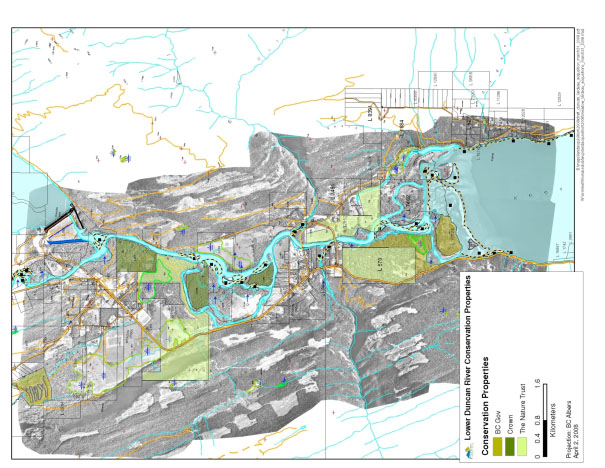Mosquitoes bring more than an itch to the RDCK
The Regional District of Central Kootenay will seek legal advice on how to compel the Nature Trust (TNT) of BC to treat their land in the Lardeau valley for mosquito abatement.
The TNT has advised the RDCK verbally that it will not authorize the use of the larvaecide bacillus thuringiensis israelenis (bti) on their land, citing published evidence that the bacteria can be harmful to other insects, birds and amphibians.
“If and when there is a human health risk in the future, then we will authorize the use of bti,” said TNT’s CEO Jasper Lament. Lament took over running the organization in 2012.
“Our mission is to manage these properties for conservation values,” he said. “It’s the focus of our organization.”
But Area D director Andy Shadrack, who introduced an enforcing by-law allowing the RDCK to enter private lands at the August 21 board meeting, said that the mosquitoes pose a health and occupational hazard for the mill workers and residents during the hatch in the four communities in the Lardeau Valley.
“People literally can’t work in the mills,” Shadrack said.
He also cited the presence of West Nile virus in 2002, 2011 and 2012 in the area.
“I’m a bit miffed,” said Shadrack. Unlike Lament, he said, “I have seen no evidence that bti is impacting any other species.”
The application of bti is over for this year—it was approved by residents in 1998 by referendum before TNT bought their lands—and TNT’s lands have treated up to and including the 2014 season.
But next year the RDCK will have to deal with TNT’s concerns.
Bti is not sprayed, it is applied in cornmeal on ponds or from helicopter.
Lament was advised by Interior Health on two occasions this year that there is no presence of the West Nile virus. Four cases have been found in BC since West Nile was identified in 2009, all of them in the Okanagan.
“We do not yet have evidence of West Nile virus activity in the area you have described. While vector species may be present in the area, no surveillance data we are aware of indicate the presence of the virus,” Kevin Touchet of IH wrote Shadrack in an email April 28.
On August 20, Touchet confirmed: “There have been no positive indicators reported yet for this year. The site is updated routinely through the summer season.”
However, Touchet added that IH “recognizes that the benefits of mosquito control programs go beyond reducing risk of disease transmission.
“Reducing mosquito populations may improve the quality of life for those working and living in the area during the mosquito season. Being active, including physical activity outdoors, forms part of healthy living activities and general well being. As such, we support your efforts to improve the working and living conditions for the people in the Lardeau / Duncan Valley area.”
Instead of passing the proposed enforcement by-law resolution, the board opted to seek legal advice. Both Shadrack and Lament said they are willing to pursue alternate methods, such as bat houses on TNT’s land and proper management of wetlands.
“We’re certainly open to input on mosquito control,” said Lament. “There is a general philosophy that healthy wetlands do not produce mosquitoes,” he said, suggesting human disturbances of the landscape may be significant contributors to the problem.
West Nile virus is a disease that is spread from infected corvid birds (crows, ravens, magpies, and jays) to humans through mosquito bites, Interior Health said in a July press release
“Though 80 per cent of people infected with West Nile virus will not get sick, about 20 per cent of people will have mild to moderate illness that starts three to 14 days after being infected.”
Symptoms of West Nile virus may include fever, headache, body aches, fatigue, swollen lymph glands, and sometimes a rash on the body.
These symptoms generally last about one week, but they can last much longer, IH said.
“Less than one per cent of people infected with the West Nile virus can experience more serious illnesses and in very rare cases West Nile virus can result in death.”
Nonetheless, IH cautions to reduce exposure to mosquitoes by wearing repellent, disposing of stagnant water and installing screens in homes.



























Comments